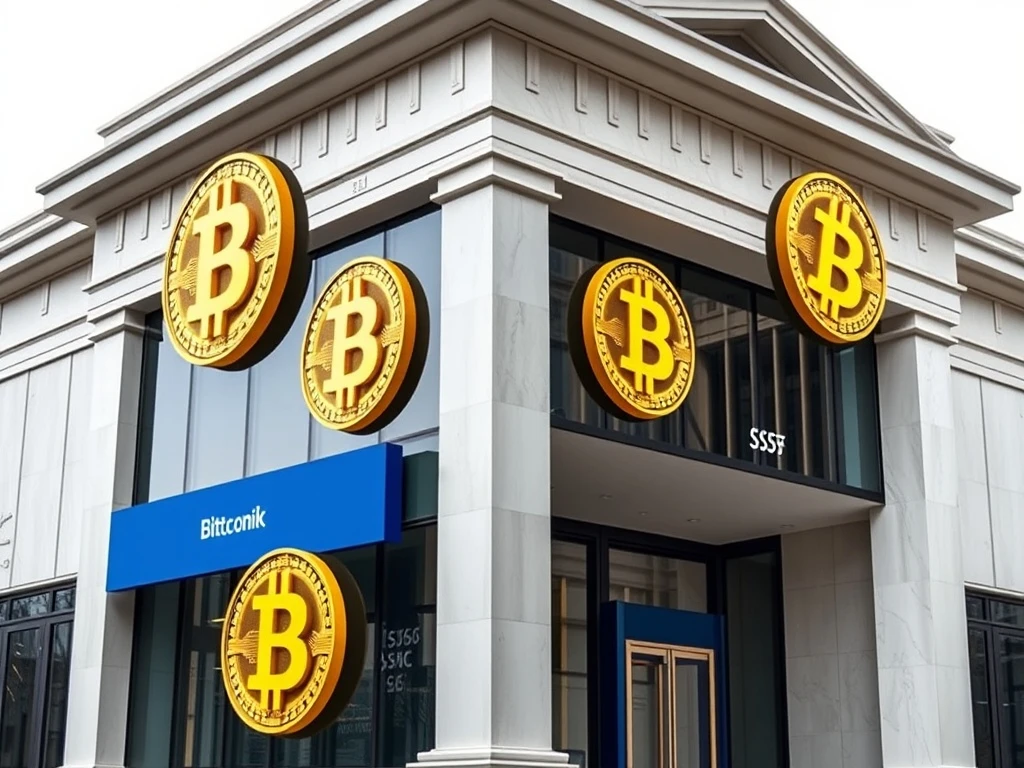In a landmark move that signals cryptocurrency’s maturation, U.S. Bancorp has dramatically re-entered the Bitcoin custody space after a three-year regulatory hiatus. This strategic decision represents a pivotal inflection point for institutional adoption, potentially reshaping how traditional financial institutions integrate digital assets into their service offerings.
Bitcoin Custody Services Resume After Regulatory Clarity
U.S. Bank’s return to Bitcoin custody directly results from evolving regulatory conditions. Previously, SEC’s Staff Accounting Bulletin 121 imposed stringent capital requirements that deterred institutional participation. However, recent regulatory changes and the Trump administration’s pro-crypto stance have created a more favorable environment. Consequently, banks can now navigate compliance with greater confidence while reducing capital burdens.
NYDIG Partnership Bridges Traditional Finance Gap
The strategic partnership with NYDIG proves crucial for successful Bitcoin custody implementation. NYDIG’s vertically integrated model combines Bitcoin mining, institutional custody, and power infrastructure. This collaboration allows U.S. Bank to offer institutional-grade custody without developing in-house capabilities. Moreover, it accelerates time-to-market while significantly reducing operational risks for traditional financial institutions.
Growing Institutional Demand for Bitcoin Exposure
Market dynamics show increasing institutional appetite for Bitcoin custody solutions. U.S. Bank now supports 33 Bitcoin-focused funds and 15 digital asset-focused funds. This expansion responds to substantial demand from investment managers seeking diversified crypto exposure. Additionally, Bitcoin ETF approvals further amplify the need for secure, scalable custody infrastructure to manage large-scale institutional inflows effectively.
Competitive Landscape Intensifies
The Bitcoin custody market faces increasing competition as traditional banks recognize the opportunity. Established players like JPMorgan and Fidelity already maintain significant market presence. However, U.S. Bank’s scale and established trust in traditional markets could disrupt existing dynamics. Furthermore, this move will likely spur similar initiatives from other financial institutions seeking to capture market share.
Price Implications and Market Legitimization
Increased institutional Bitcoin custody adoption correlates strongly with price action. Historical precedents, including the 2021 ETF frenzy, demonstrate how institutional demand drives liquidity and price discovery. With U.S. Bank facilitating custody for Bitcoin ETFs, market observers anticipate similar buying pressure. Simultaneously, Bitcoin’s legitimization as a “safe-haven” asset accelerates through institutional endorsement.
Strategic Implications for Financial Institutions
U.S. Bancorp’s Bitcoin custody resurgence represents more than tactical business expansion. It signals a fundamental shift in how traditional finance views digital assets. Regulatory clarity, specialized infrastructure, and competitive dynamics converge to create a self-reinforcing adoption cycle. Consequently, institutions adapting fastest will likely shape future global capital market structures.
FAQs
What prompted U.S. Bank to resume Bitcoin custody services?
Regulatory clarity following SAB 121 rescission and favorable policy changes enabled banks to navigate compliance confidently while reducing capital requirements.
How does NYDIG support U.S. Bank’s custody services?
NYDIG provides vertically integrated Bitcoin infrastructure including mining, custody, and power management, allowing traditional banks to offer services without building in-house capabilities.
What types of funds does U.S. Bank support through custody services?
The bank currently supports 33 Bitcoin-focused funds and 15 digital asset-focused funds for institutional investment managers.
How might this affect Bitcoin’s price movement?
Increased institutional custody adoption typically correlates with higher liquidity and buying pressure, potentially driving price appreciation based on historical patterns.
What competitive advantage does U.S. Bank have in custody services?
The bank’s established trust relationships with institutional clients and traditional market scale provide competitive advantages against crypto-native custody providers.
How does this impact broader cryptocurrency adoption?
Traditional financial institutions entering Bitcoin custody signals mainstream acceptance, potentially accelerating overall institutional cryptocurrency adoption across markets.








